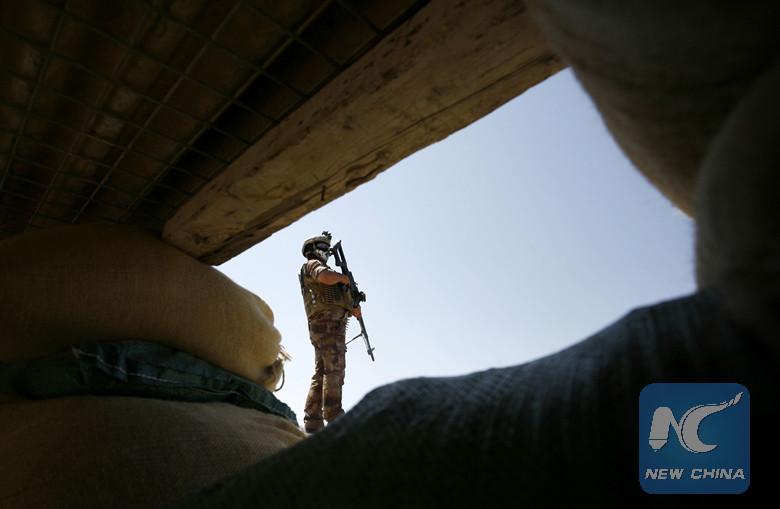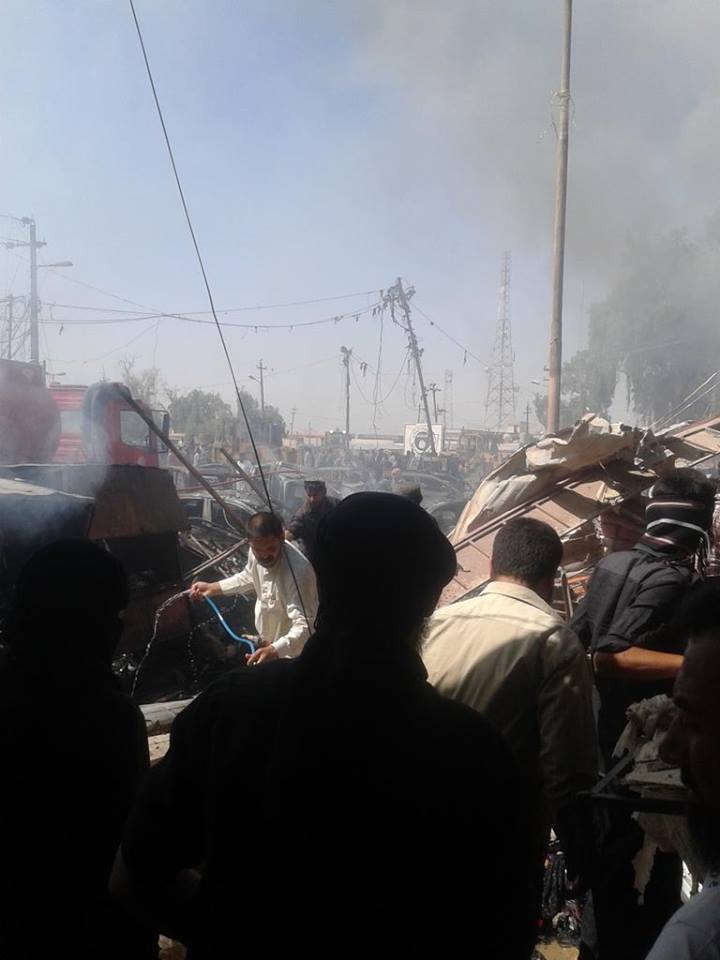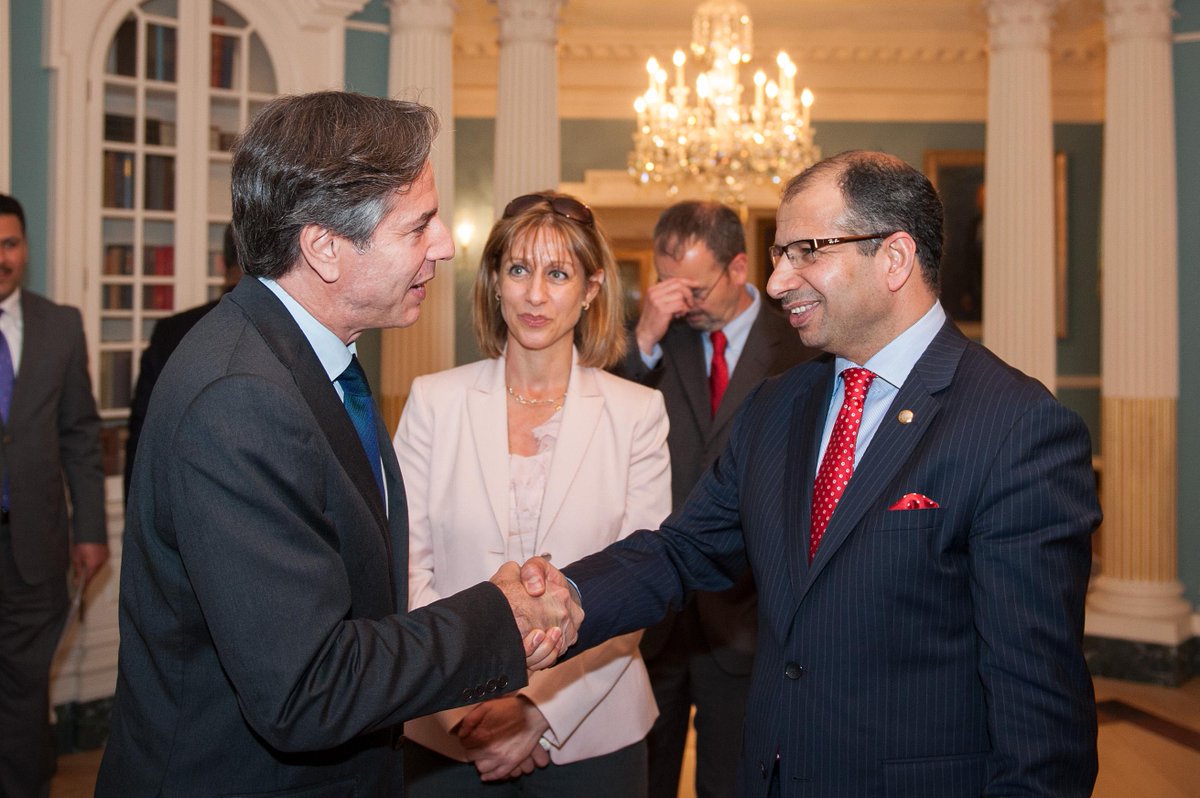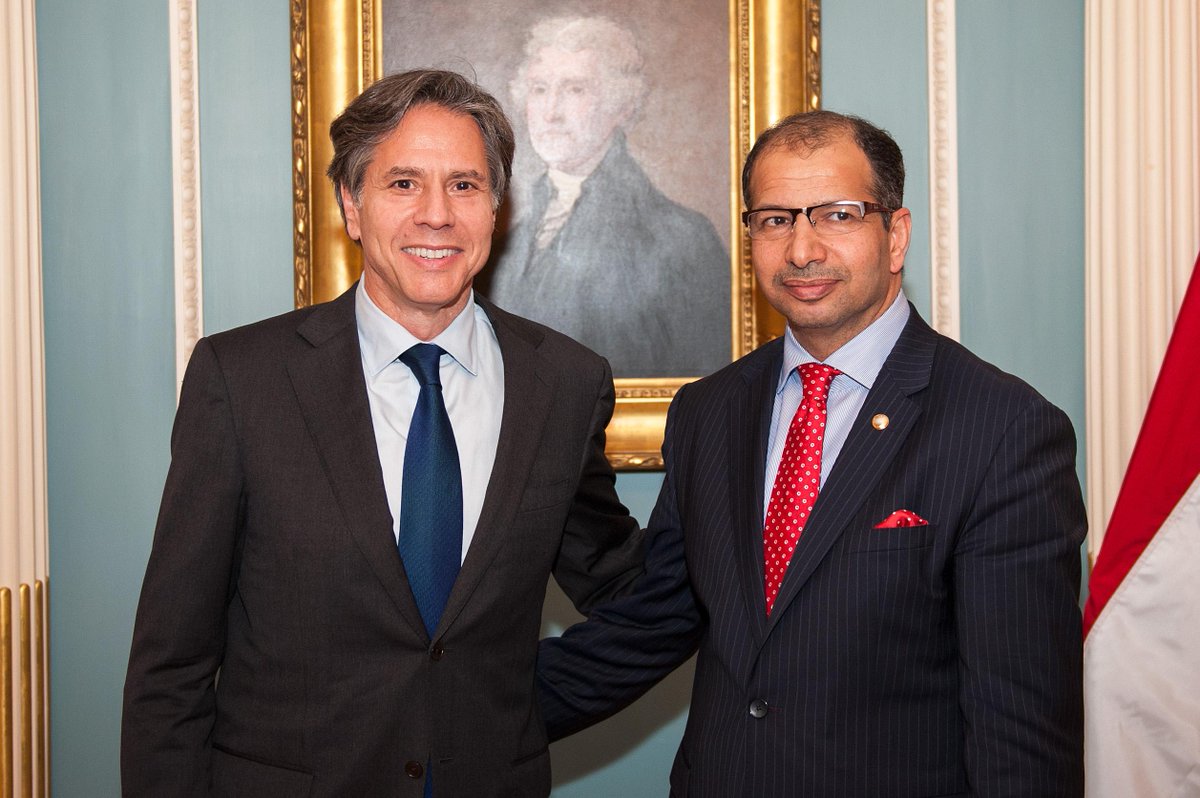Analysis: Iraqis skeptical over Obama's new anti-IS strategy in #Iraq http://xhne.ws/o47Od
Analysis: Iraqis skeptical over Obama's new anti-IS strategy in #Iraq http://xhne.ws/o47Od
"Iraq snapshot" (The Common Ills):
Thursday, June 12, 2015. Chaos and violence continue, more civilians killed in coalition air strikes, it's left to General Ray Odierno to talk about the needed political solution, the year long US battle against the Islamic State leaves US taxpayers nearly $3 billion in debt, and much more.
#التأميم: إحدى الصور الملتقطة لآثار القصف الحكومي على سوق الحويجة والذي خلف أكثر من 100 قتيل من المدنيين.
The Washington Post's Eugene Robinson offers some consolation, "Don't feel bad if you’re confused about what the United States is trying to accomplish in Iraq. President Obama doesn't seem to know, either -- or else he won't say."
Yes, no one gets Barack Obama in trouble more than Barack and his own mouth and his declaration Monday ("We don't yet have a complete strategy because it requires commitments on the part of the Iraqis.") continues to haunt.
In June of last year, he sent US forces into Iraq to determine what to do.
Apparently, their efforts were in vain since all this time later Barack still doesn't know what to do.
"We don't yet have a complete strategy because it requires commitments on the part of the Iraqis."
Many have noted over the ensuing months that Barack's 'plan' was less than a plan -- so much less than a plan. And on Monday, Barack chose to agree with his critics.
It was June of last year when Barack announced that the only solution to Iraq's crises (plural) was a political solution.
Yet his 'plan' ended up being to send US troops into Iraq as 'trainers' and to have US war planes bomb the country daily.
The political solution would, apparently, have to wait.
And it has which has rendered any US efforts useless.
From time to time, State Dept officials such as Brett McGurk or Antony Blinken will try to insist that efforts to get Sunnis to join in combat against the Islamic State qualifies as a political solution.
No, it doesn't and, no, Barack was not referring to that on June 19, 2014 when he declared a political solution the only answer for Iraq.
What can't be discussed by the White House, gets aired on CBS This Morning (link is video):
Gen Ray Odierno: Well I think first I would just say that you've got to understand why this is happening. And my thought is we had this in a good place three or four years ago and-and Iraq was safe, the economy was growing, we turned it over to the Iraqi government. I believe it's because the Iraqi government has not been able to bring all the different groups together. Until you solve that problem, in my mind, it doesn't matter how many people you put on the ground --
Charlie Rose: That's right.
Gen Ray Odierno: And so my worry is: Could I put 150,000 soldiers on the ground and defeat ISIS? Yes. But then --
Charlie Rose: If you put 150,000 --
Gen Ray Odierno: But then what?
Charlie Rose: If you put 150,000 on it, it would defeat ISIS?
Gen Ray Odierno: Yeah.
Charlie Rose: But then what? But then what?
Gen Ray Odierno: You have to solve the political problem.
Charlie Rose: It would go right back to where we are. A year later it would be right back to where we are today. So I believe before we even consider anything like that, we need to solve --
Gen Ray Odierno: The political problem.
Charlie Rose: -- the political problem.
Gayle King: But do you think -- General, do you think we're leading towards ultimately boots on the ground?
Gen Ray Odierno: I-I think what we're trying to do -- Listen, in order to solve this problem, you need the Arab communities to solve this problem. The United States cannot solve this problem by itself. We need the Arabs to step up. We need them to understand we have extremism here and they have to help us and include the Iraqis --
[cross talk]
Gayle King: And why haven't they done that?
Gen Ray Odierno: Well again, there's this underlying -- there's this underlying throughout the Middle East, there's this underlying Sunni - Shia issue. Iran, Saudi Arabia -- Sunni - Shia issue -- that's playing out. And that's what's making it more difficult for us and for anybody else to help them defeat this threat.
Gayle King and Charlie Rose are two of the hosts of CBS This Morning. The third host is Norah O'Donnell who also took part in the interview. She raised some issues I'd like to get to next snapshot but we don't have time tonight.
Our point above is that General Odierno can and will talk about what is needed while the State Dept stays silent.
A political solution is needed, a unified government that is not targeting Sunnis.
This effort should be led by the State Dept but it's not leading on it, it's not helping with it, instead the White House has tasked the State Dept with using diplomatic channels to try to bring in more trainers and war planes from other foreign countries.
The political solution is not being addressed.
It's being ignored.
Ray Odierno is correct that a political solution is needed and it is the only thing that will change anything.
Without a political solution, as he notes, you can still defeat the Islamic State "but then what" because all the issues that led to the rise of IS in Iraq are still present so you're just going to have a new group rise up or a new variation of IS. The Islamic State took root in Iraq because of the various crises. Until the roots of those crises are addressed, it doesn't matter whether or not IS is defeated because it or something similar will always spring up.
So what is Barack doing?
Ian Bremmer (Time magazine) explains, "Aversion is the name of the game these days. Obama talks a big game about ISIS and how it must be destroyed, just like he talks big about how Russia must leave Ukraine. But he carefully avoids mentioning who exactly will defeat ISIS or drive Russia out of Ukraine. It looks like Obama is doing just enough to drag out these difficult challenges -- and hand them over to the next President."
And that pretty much sums up Barack's supposed 'plan.'
A year in, that pretty much sums up Barack's 'plan.'
This despite the fact that AP reports the fight against the Islamic State is costing American taxpayers $9 million a day with the total at $2.7 billion so far.
Under Bully Boy Bush, the US antiwar movement -- or 'movement' -- used to object to US boots on the ground and to military bases. The biggest criticism US House Rep Nancy Pelosi faced on Iraq during that period came over US military bases in Iraq and her ludicrous attempt to redefine the term "permanent" to justify the goal of keeping longterm bases in Iraq. (Nancy said nothing was permanent -- and as her many facelifts have proven, nothing is permanent.)
Today there's barely a peep over either issue and, let's be clear, this is also about US bases in Iraq.
A day after the White House announced the deployment of 450 more U.S. troops to Iraq and a new training hub in Anbar province, Army General Martin Dempsey said the Pentagon was considering more sites in strategic areas such as the corridor from Baghdad to Tikrit and further north toward Mosul.
Dempsey, chairman of the Joint Chiefs of Staff, acknowledged these might require sending more U.S. troops, which already numbered about 3,100 in Iraq before Wednesday's announcement. His spokesman said American forces could also be moved from within Iraq to avoid troop increases.
Dempsey, chairman of the Joint Chiefs of Staff, acknowledged these might require sending more U.S. troops, which already numbered about 3,100 in Iraq before Wednesday's announcement. His spokesman said American forces could also be moved from within Iraq to avoid troop increases.
A.N.S.W.E.R.'s Richard Becker spoke with Russia Today about the White House announcing the 450 more troops to be deployed to Iraq.
RT: Why do you think the US decided to deploy a military unit which mostly specializes in combat rather than training activities?
RB: I think that they see the weakness, it’s very clear to them. They invested tens of billions of dollars in building up the Iraqi military but it hasn’t worked. I remember way back in January 1975, the army of South Vietnam that was constructed in a similar way under occupation was rated the fifth largest military in the world and five months later it didn’t exist anymore. The US government, the Pentagon and the White House are trying to find a way to salvage this situation, to salvage something in Iraq after all that blood, mostly blood on the Iraqi side of course, but it’s not clear that they do have any kind of a clear strategy in that regard.
RT: The US has pulled out of Iraq but now it's going back in. Is this an admission it never really succeeded?
RB: This has been a disaster for US policy. You can see with the great arrogance that the Iraqi government was dismantled back in 2003, the military was dismantled, there are always proclamations about Iraqis welcoming the US troops and how this was all going to be a new day for Iraq and the entire Middle East. And instead it turned into a disaster. The US barely escaped from outright defeat back in 2009 and 2010. Then it pulled out the troops. But the instability that was introduced into the whole region by the US invasion of Iraq, by its allies’ support for the opposition in Syria, its dismantling of the Libyan state, all of this has come togetherto create a situation which Washington doesn’t really have a grip on how to deal with. They are trying some of these things but it doesn’t appear that this will push back IS.
RB: I think that they see the weakness, it’s very clear to them. They invested tens of billions of dollars in building up the Iraqi military but it hasn’t worked. I remember way back in January 1975, the army of South Vietnam that was constructed in a similar way under occupation was rated the fifth largest military in the world and five months later it didn’t exist anymore. The US government, the Pentagon and the White House are trying to find a way to salvage this situation, to salvage something in Iraq after all that blood, mostly blood on the Iraqi side of course, but it’s not clear that they do have any kind of a clear strategy in that regard.
RT: The US has pulled out of Iraq but now it's going back in. Is this an admission it never really succeeded?
RB: This has been a disaster for US policy. You can see with the great arrogance that the Iraqi government was dismantled back in 2003, the military was dismantled, there are always proclamations about Iraqis welcoming the US troops and how this was all going to be a new day for Iraq and the entire Middle East. And instead it turned into a disaster. The US barely escaped from outright defeat back in 2009 and 2010. Then it pulled out the troops. But the instability that was introduced into the whole region by the US invasion of Iraq, by its allies’ support for the opposition in Syria, its dismantling of the Libyan state, all of this has come togetherto create a situation which Washington doesn’t really have a grip on how to deal with. They are trying some of these things but it doesn’t appear that this will push back IS.
Meanwhile the coalition bombed the town of Hawija. Iraqi Spring MC posted this at their Twitter feed:
Margaret Griffis (Antiwar.com) counts 61 violent deaths across Iraq.
We'll close with this from the forever bumbling US State Dept -- Thursday press briefing by spokesperson Jeff Rathke.
QUESTION: Yesterday, Speaker of Iraqi Parliament al-Jibouri met with Deputy Secretary Blinken. Do you have anything to share with us about that meeting?
MR RATHKE: Yes. We put out a fairly detailed readout last night, but maybe if I can hit a couple of highlights, and I think the – it’s important that this meeting took place on the same day that the White House and the Department of Defense announced additional steps in our train, advise, and assist mission with Iraqi authorities.
The meeting with the Parliamentary Speaker al-Jibouri was an opportunity for our side to stress that our support for the campaign to degrade and defeat ISIL, as well as to discuss ongoing political initiatives that address the needs of the Iraqi people, and at the same time the deputy secretary highlighted the U.S. deployment of additional personnel to al-Taqaddum base. And this is in support of the Iraqi Council of Ministers’ five-point plan, which was approved back on May 19th, and that includes as a central element accelerating the training and equipping of Sunni volunteers and other steps to assist people in Anbar to retake their province from ISIL.
QUESTION: On Monday, Mr. al-Jibouri at the U.S. Institute of Peace said without arming the tribal forces, it’s impossible – that’s what he said – to recapture Ramadi or those areas. Do you share his view on that issue?
MR RATHKE: Well, we have – as we have said, that we are working with, we will be working with Sunni forces in Anbar, including through this train, advise, and assist mission, to expedite the delivery of weapons. As we have consistently said, this is done in coordination with the Iraqi central government, and it will continue to be done in coordination with the Iraqi central government, because that’s a central element of our policy. And indeed, our additional steps and the deployment of additional advisors that was announced yesterday is focused precisely on supporting the Iraqi Council of Ministers’ plan. Prime Minister Abadi and his government want to accelerate the training of Sunni volunteers, and so we’re going to be taking these steps to support that
QUESTION: He also raised another concern that the Sunnis have at the USIP. He said last time in 2007, when the United States armed the Sunni groups, after the United States left, most of those people who were armed were chased and tried by the Iraqi Government, quote/unquote. That’s what he said. But now the Sunnis need a – some sort of guarantor that the same thing is not going to happen again after ISIS is gone. Are you willing to provide that guarantor for the Sunnis and encouraging them to be part of the fight and they won’t be in trouble by the law?
MR RATHKE: Well, I’m not sure specifically what you mean by guarantee, but again, it is the Iraqi Government’s policy and it is the prime minister’s policy supported across ethnic and sectarian lines by the council of ministers to accelerate the training and equipping of Sunni tribal fighters. So I’m not going to draw a connection between the policy now that the prime minister stands behind and whatever might have happened in the past.
QUESTION: But in all fairness, right after the awakening, councils were formed and they were paid because they were overseen by the Americans, by Petraeus at the time. Right after you – the Americans left, they stopped paying them, then they started putting them in prison. So I mean, there is a legitimate grievance there. I mean, I don’t know if you agree.
MR RATHKE: Well, again, as I said in my answer to Namo’s question, we’re – if you look at the situation now, what is important is that there is an Iraqi Government policy which supports the training and equipping of more Sunni tribal fighters. And that’s what we’re supporting.
MR RATHKE: Yes. We put out a fairly detailed readout last night, but maybe if I can hit a couple of highlights, and I think the – it’s important that this meeting took place on the same day that the White House and the Department of Defense announced additional steps in our train, advise, and assist mission with Iraqi authorities.
The meeting with the Parliamentary Speaker al-Jibouri was an opportunity for our side to stress that our support for the campaign to degrade and defeat ISIL, as well as to discuss ongoing political initiatives that address the needs of the Iraqi people, and at the same time the deputy secretary highlighted the U.S. deployment of additional personnel to al-Taqaddum base. And this is in support of the Iraqi Council of Ministers’ five-point plan, which was approved back on May 19th, and that includes as a central element accelerating the training and equipping of Sunni volunteers and other steps to assist people in Anbar to retake their province from ISIL.
QUESTION: On Monday, Mr. al-Jibouri at the U.S. Institute of Peace said without arming the tribal forces, it’s impossible – that’s what he said – to recapture Ramadi or those areas. Do you share his view on that issue?
MR RATHKE: Well, we have – as we have said, that we are working with, we will be working with Sunni forces in Anbar, including through this train, advise, and assist mission, to expedite the delivery of weapons. As we have consistently said, this is done in coordination with the Iraqi central government, and it will continue to be done in coordination with the Iraqi central government, because that’s a central element of our policy. And indeed, our additional steps and the deployment of additional advisors that was announced yesterday is focused precisely on supporting the Iraqi Council of Ministers’ plan. Prime Minister Abadi and his government want to accelerate the training of Sunni volunteers, and so we’re going to be taking these steps to support that
QUESTION: He also raised another concern that the Sunnis have at the USIP. He said last time in 2007, when the United States armed the Sunni groups, after the United States left, most of those people who were armed were chased and tried by the Iraqi Government, quote/unquote. That’s what he said. But now the Sunnis need a – some sort of guarantor that the same thing is not going to happen again after ISIS is gone. Are you willing to provide that guarantor for the Sunnis and encouraging them to be part of the fight and they won’t be in trouble by the law?
MR RATHKE: Well, I’m not sure specifically what you mean by guarantee, but again, it is the Iraqi Government’s policy and it is the prime minister’s policy supported across ethnic and sectarian lines by the council of ministers to accelerate the training and equipping of Sunni tribal fighters. So I’m not going to draw a connection between the policy now that the prime minister stands behind and whatever might have happened in the past.
QUESTION: But in all fairness, right after the awakening, councils were formed and they were paid because they were overseen by the Americans, by Petraeus at the time. Right after you – the Americans left, they stopped paying them, then they started putting them in prison. So I mean, there is a legitimate grievance there. I mean, I don’t know if you agree.
MR RATHKE: Well, again, as I said in my answer to Namo’s question, we’re – if you look at the situation now, what is important is that there is an Iraqi Government policy which supports the training and equipping of more Sunni tribal fighters. And that’s what we’re supporting.

 اعلام الربيع العراقي
اعلام الربيع العراقي 
 #IRAQ شمرية العراق
#IRAQ شمرية العراق 



 The Situation Room
The Situation Room
 Brett McGurk
Brett McGurk
 Marc Hilliker
Marc Hilliker
